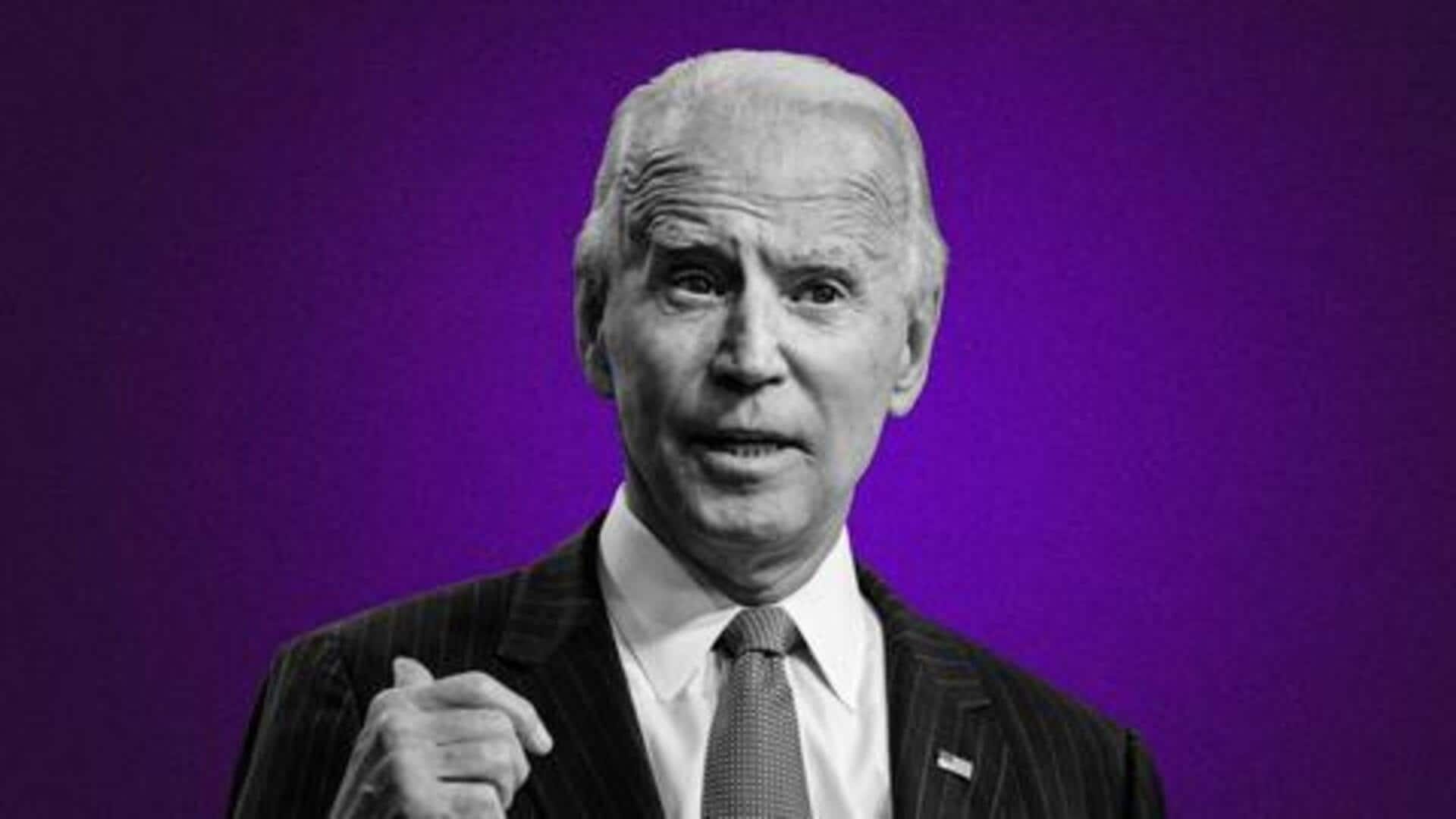
US military to airdrop humanitarian aid into Gaza, says Biden
What's the story
United States (US) President Joe Biden on Friday said the US military would airdrop food and other supplies into Gaza to address the humanitarian crisis and potential famine, Reuters reported. The decision follows the tragic deaths of over 100 Palestinians while attempting to reach an aid convoy. "We need to do more and the United States will do more," Biden stated, acknowledging that current aid efforts are insufficient. Other countries, such as Jordan and France, have already conducted similar airdrops.
Context
Why does this story matter?
On Thursday, at least 112 people were killed and 760 injured in Gaza while waiting for food aid, as Israeli forces fired upon the crowd. Hamas condemned the incident as an "ugly massacre," while Israel attributed the deaths to crowds surrounding aid trucks, saying that victims were either trampled or run over. Gaza's 2.4 million people, most of whom are confined to Rafah, face the threat of famine and starvation as Israel continues its raids.
Official statement
Airdrops would become 'sustained effort': White House
White House Spokesperson John Kirby corroborated the plan, saying these airdrops would be a "sustained effort" and the first airdrop is expected to include military MREs (meals ready-to-eat). Nearly 576,000 people in Gaza, or one-quarter of its population, are on the brink of famine, as reported by the United Nations Office for the Coordination of Humanitarian Affairs (UNOCHA). The situation has deteriorated since the conflict began with a Hamas attack on Israel on October 7, causing increased desperation among Palestinians.
Challenges
Challenges, limitations of airdrops
Amid the crisis in Gaza and subsequent plans by the US military to execute airdrops effectively, concerns remain about alleviating the suffering of Palestinians. A US official noted that airdrops would only have limited effects and would not address the root cause of the crisis. Opening land borders was considered a more effective solution, he said. Additionally, there is no guarantee that the aid will not fall into Hamas's hands due to the absence of US troops on the ground.
Expert insights
Alternative aid delivery methods
Richard Gowan, the International Crisis Group's UN Director, suggested that aid convoys following a truce would be a better method for delivering aid than airdrops. However, he conceded that "the situation in Gaza is now so bad that any additional supplies will at least alleviate some suffering." Biden also mentioned the possibility of a marine corridor to deliver large amounts of aid to Gaza. Shipping assistance by sea from Cyprus is being considered as an option.
UN speaks
UN delivers aid to northern Gaza
Meanwhile, the UNOCHA announced that aid was being delivered to besieged northern Gaza for the first time in over a week. Medicines, vaccines, and fuel were provided to al-Shifa Hospital in Gaza City. Earlier, the World Food Programme (WFP) temporarily halted food aid deliveries to northern Gaza until safe distribution conditions were met. The UN Relief and Works Agency for Palestine Refugees (UNRWA) stated that the number of trucks entering Gaza remains well below the target of 500 per day.